Illinois Rice? It's Nice... and at Green City
Cahokia Rice of southern Illinois goes very direct to consumer
Unexpected Way to Go with the Grains
Yesterday I spent the whole day working at Naturally Chicago’s impressive Pitch Slam and Financing & Innovation Forum. As many of you know, I do contract work with the organization, which functions as the trade association for the region’s Natural Products packaged goods industry. It was a great event that connected entrepreneurs who produce better-for-people-and-the-planet products with businesses that can help them grow.
As the de facto staff photographer, I was on my feet a lot and might have made an excuse to pass on the Wednesday Green City Market session. But I was a man on a mission — to re-connect with a rare Illinois rice producer that has begun selling at Green City on Wednesday.
Illinois isn’t one of the leading rice-producing states, but Cahokia Rice — based in the far southern Illinois town of McClure — is making a mark with its excellent quality and its billing as a high protein, low glycemic rice that is free of heavy metals and grown on a family farm.
Over recent years, I’ve occasionally been able to purchase their white and brown rice at specialty stores, and I had met Jason Holman, their sales director, at product expo events.
I was glad to see that Jason was managing Cahokia’s booth. I think that raising recognition that Illinois does in fact produce not only rice but very high quality rice is due for a Local Food Forum article so watch this space… and if you can, pay a visit to their stand at Green City’s Wednesday markets.
Also at the market, while celery is not as rare a local farmers market find than rice, it is not a crop that many local farmers produce. Nichols Farm & Orchard of Marengo, Illinois does, though, and this big pile o’ stalks looked beautiful.
Nichols’ radishes also sure are thriving. The French Breakfast radishes on the right are so big they could be called French Breakfast Lunch and Dinner radishes.
So you’ve already seen much of today’s market haul. From the top, Nichols celery and radishes, Cahokia white rice, River Valley Ranch cremini mushrooms (Burlington, Wisconsin), polenta sourdough from Dorothy’s Bistro (Chicago), purple asparagus from Mick Klug Farms (St. Joseph, Michigan), and two eggplant tofu salads from Phoenix Bean Tofu (Chicago).
This oughta hold me til the weekend.
Don’t Miss Our June 3 Sustainable Fish Webinar
Co-host Chef Sarah Stegner of Prairie Grass Cafe and I invite you to join our conversation with leading experts at our next Local Food Forum “Better” Dialogues webinar, Can Sustainable Seafood Catch Up?
Millions of consumers and advocates for a better food system are demanding greater availability of sustainably caught fish and other aquatic life. It is common today to find ocean fish, freshwater fish and shellfish bearing sustainability certifications and descriptors such as "wild caught" and "line caught."
But the efforts to greatly expand sustainable practices aren’t quite going swimmingly. Most fish that people eat is not produced sustainably, and mass fishing practices create risks to ecologic balance and even the survival of species. What can we, as concerned individuals, advocates, chefs and consumers do to accelerate the adoption of sustainable practices?
Our webinar on the topic will be presented on Zoom on Monday, June 3 at 7 p.m. central time.
We will engage in conversation with two leaders who preach and practice sustainability in our world's waterways. Both of the guest experts have been recognized by the James Beard Foundation, which will hold its annual awards ceremony in Chicago on June 10.
CHEF HAJIME SATO's Sozai restaurant in the Detroit suburb of Clawson is a little off the beaten path, but his reputation as a founder of the sustainable sushi category has led the James Beard Foundation to his door. A nominee for the nation's Outstanding Chef in 2023, he is up this year for Best Chef: Great Lakes.
Hajime’s sense of adventure led him to leave Japan for a year as an exchange student in Coeur d’Alene, Idaho. He later relocated to Seattle, Washington where he opened his award-winning restaurant Mashiko in 1994. In 2009, Hajime became one of the first sushi chefs to commit to using only sustainable seafood. When Hajime decided in 2019 to move to Michigan, where he opened Sozai, several of his former employees took over the Seattle restaurant. He is excited to share his experience and passion for sustainable seafood at Sozai.
NIAZ DORRY has devoted the past 30 years of her life to elevating public consciousness about the need to protect the world's environmentally challenged fisheries. The coordinating director of the Northwest Atlantic Marine Alliance since 2008, Niaz previous served with the Greenpeace organization's Fisheries and Oceans Campaign. In addition, Niaz is executive director of the National Family Farm Coalition.
Niaz will be recognized for this work when she receives the James Beard Foundation Leadership Award for Policy Advocacy in June. According to the Foundation, Niaz "has played a pivotal role in steering federal legislation towards recognizing and supporting small-scale, traditional, and Indigenous fishing communities." It adds, "Her efforts to raise awareness about the critical role of small-scale, values-based fisheries in mitigating climate change and advancing gender and racial equity have inspired more sustainable practices within the restaurant industry."
Please join us for what is sure to be an engaging and enlightening discussion on this important topic. There will be a Q&A section, so bring your questions!
The co-hosts thank their supporters from Mariano's, Chicago Chefs Cook, Chicago Market —A Community Co-op, Community Food Navigator, Landmark Pest Management and Prairie Grass Cafe.

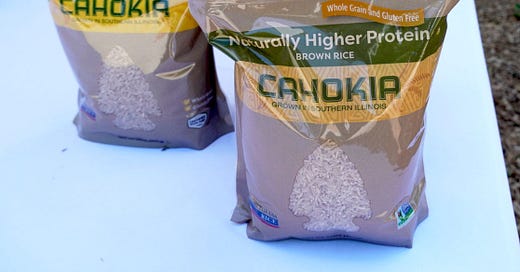



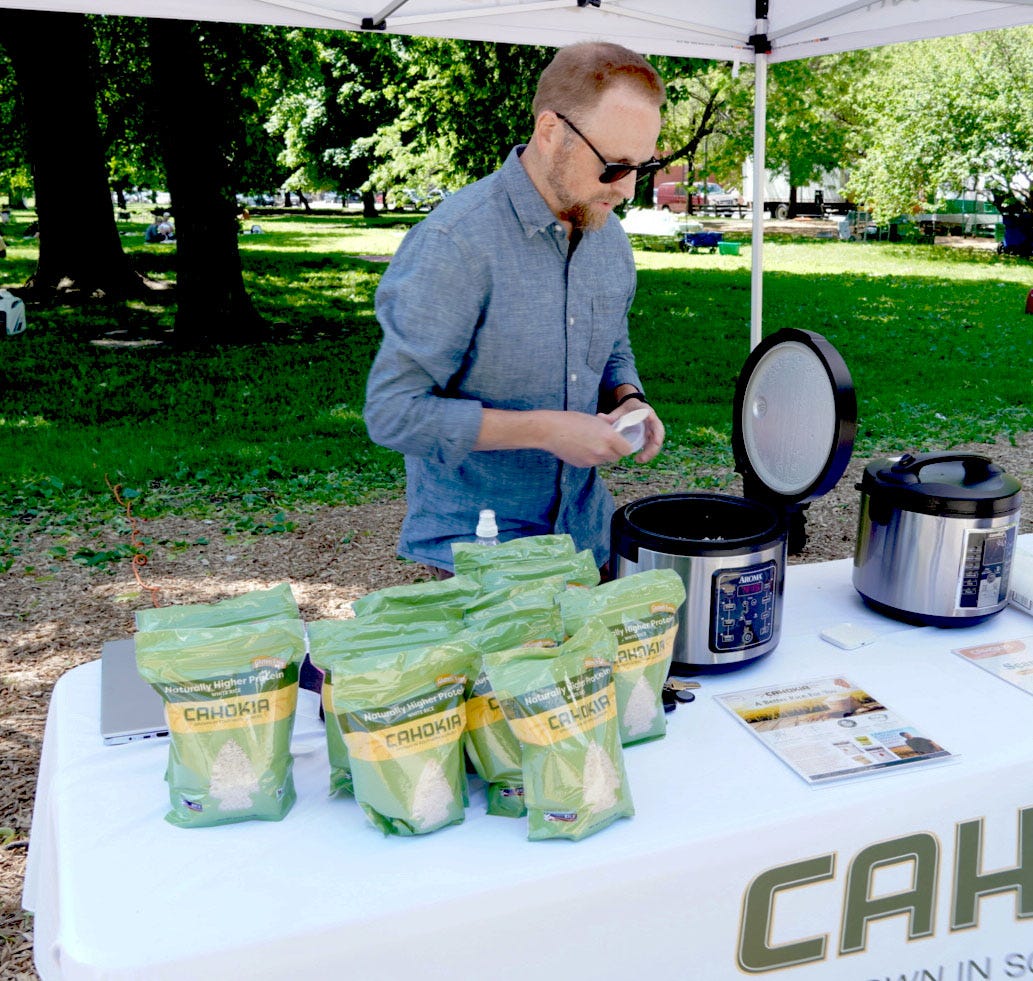
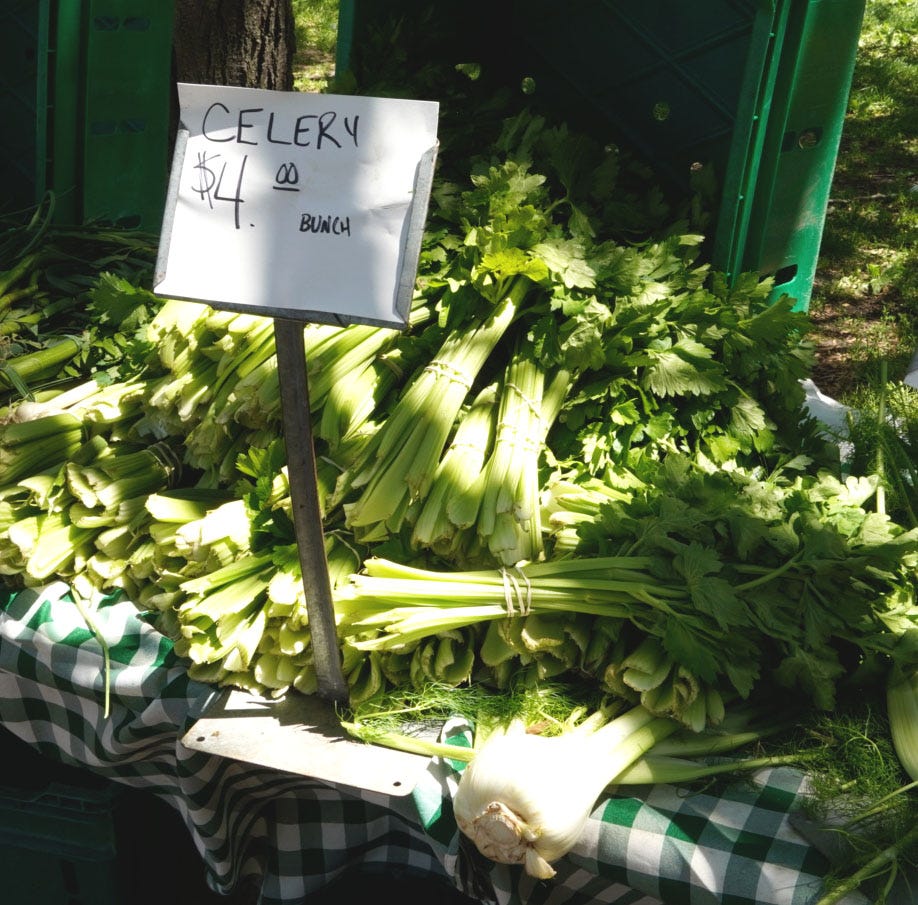
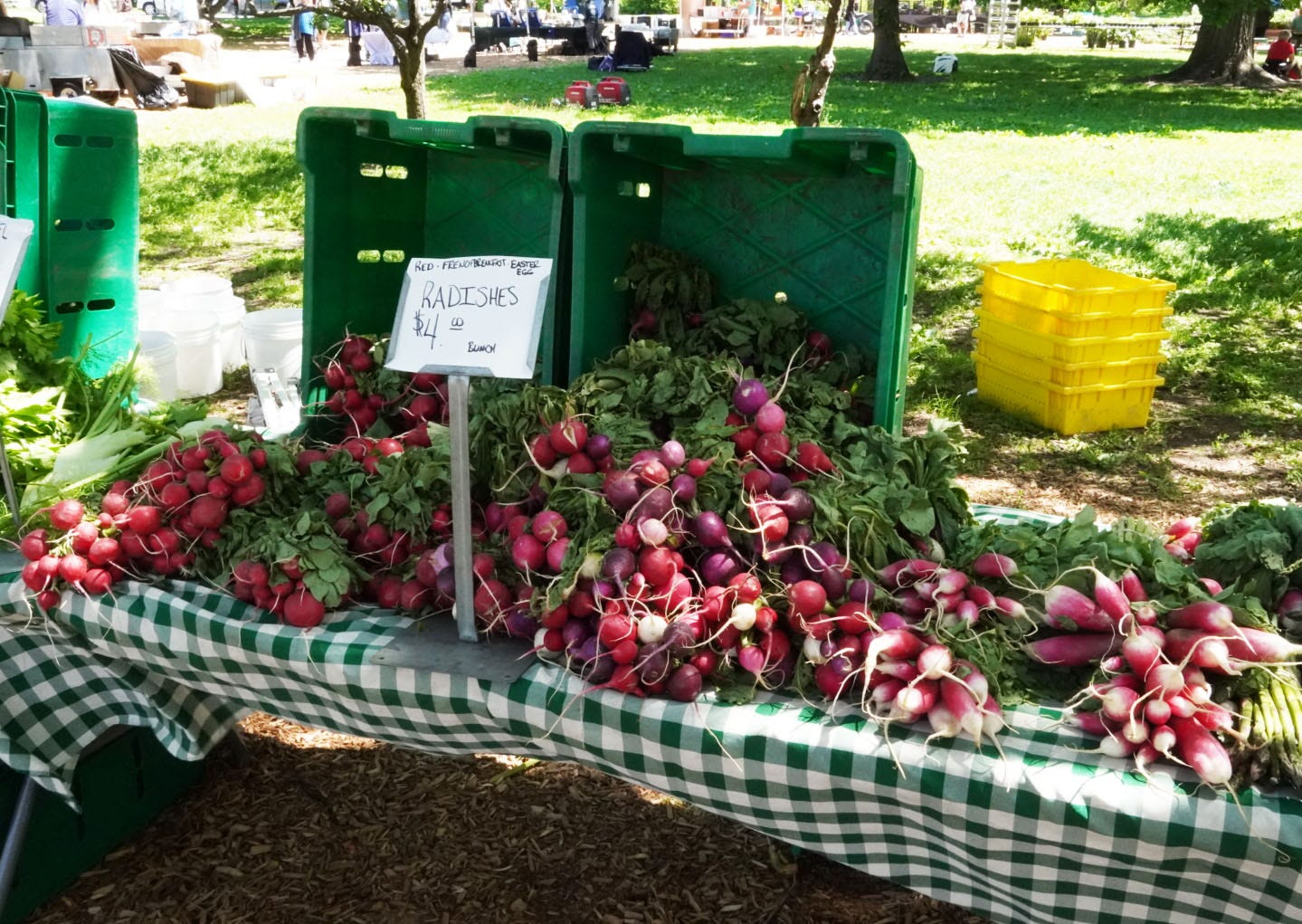
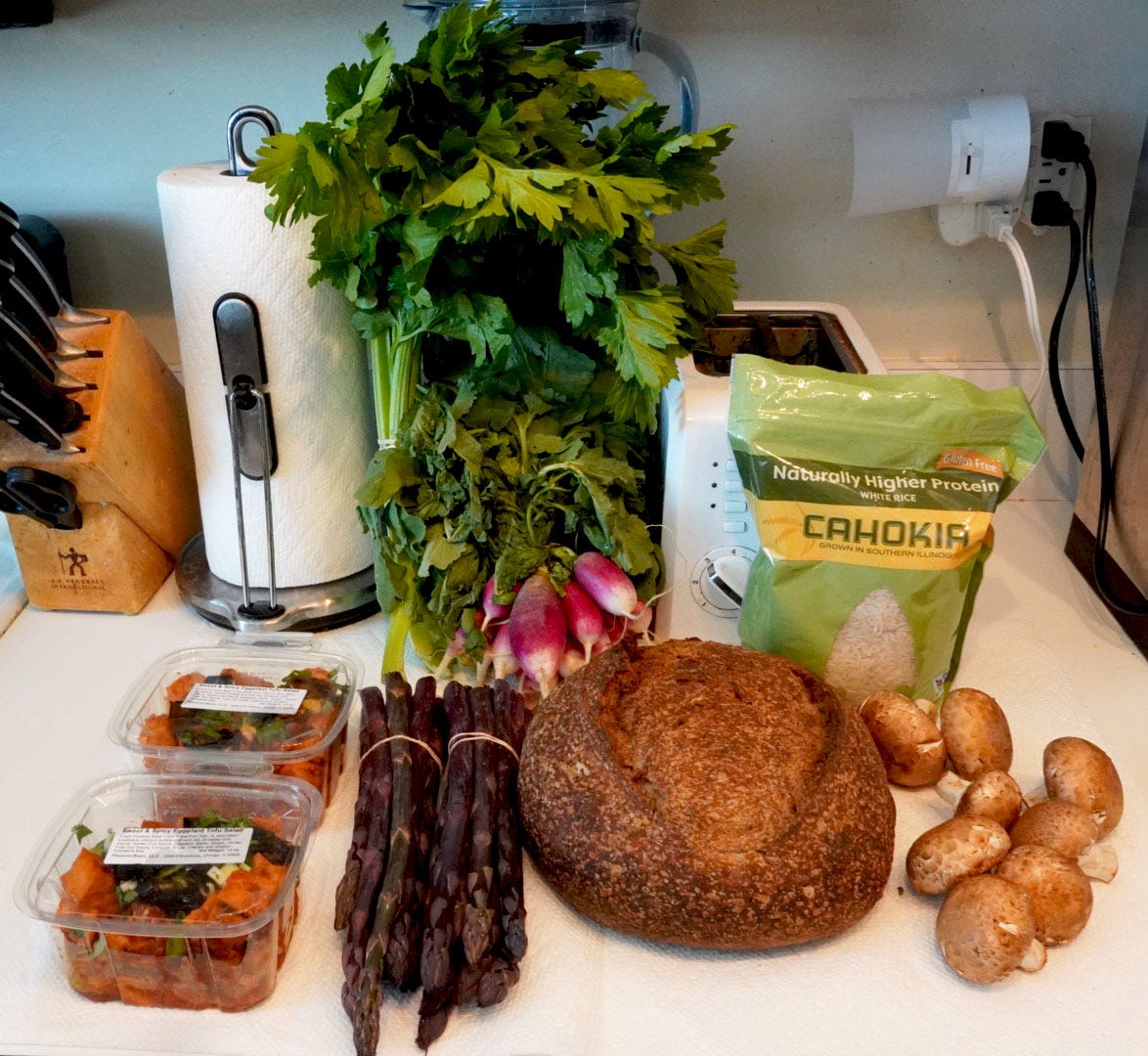
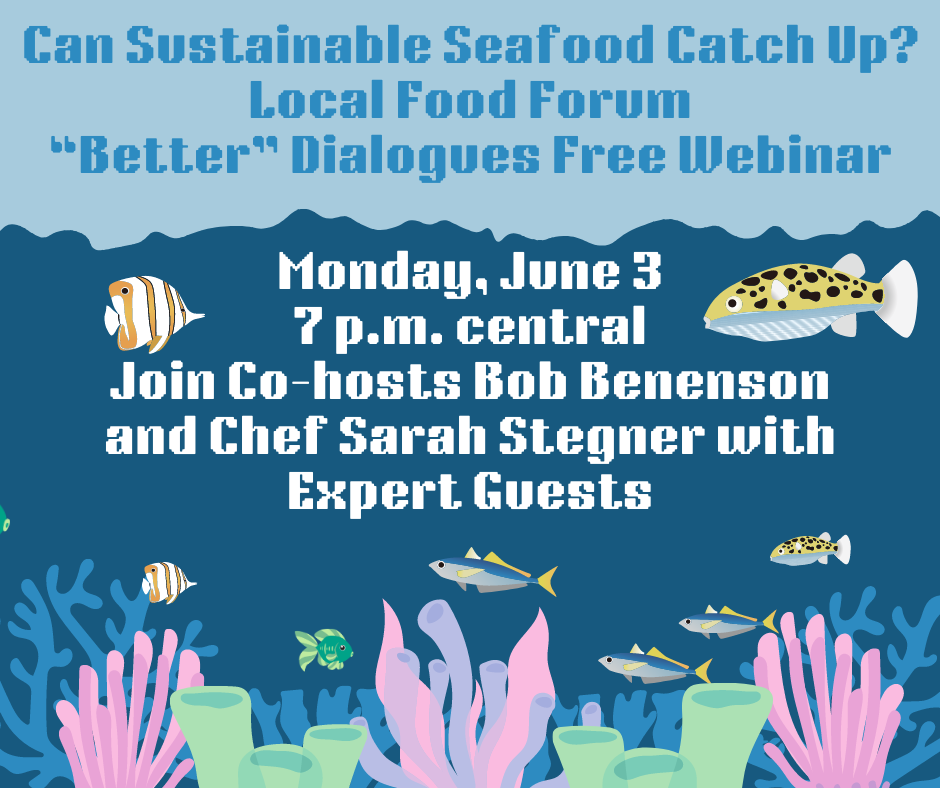
You'll enjoy it, Annette. Interestingly, they are located not to far from Arkansas, which is the nation's top rice producing state, and even closer to Missouri's "Bootheel," which is that state's rice-growing region. Just shows how long Illinois really is.
Rice is hardly grown anymore in South Carolina, which was a massive 18th century supplier to Europe, so you can imagine how astonishing I find Illinois rice! I've ordered a couple of bags from Cahokia-- one of brown , one of white. Looking forward!